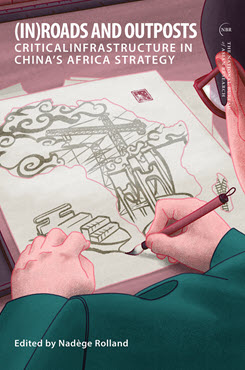Essay from NBR Special Report no. 98
African Railway Ambitions Meet China’s Belt and Road
This essay finds that Chinese railway investment in Africa has been driven by Chinese domestic commercial and strategic interests, alongside the modernization ambitions of African economies, and argues that the sustainability of these projects faces multiple financial, political, and security challenges.
EXECUTIVE SUMMARY
MAIN ARGUMENT
Chinese-built railways across Africa have become major flagship projects of the Belt and Road Initiative (BRI), driven by China’s domestic economic cycle, which pushed out excess capacity and official capital via lending and investment in the early 2010s. These projects have been a major component of Chinese lending to African sovereigns but, in turn, have contributed to growing debt burdens facing many countries, particularly in the wake of the Covid-19 pandemic. Although railways can play a transformative role in supporting industrial strategies, they are also a challenging type of infrastructure to import and adapt. The standard-gauge railways in Ethiopia, Nigeria, and Kenya illustrate many of these technology transfer challenges. While Chinese lending has slowed down, Chinese state-owned enterprises will have a long-term presence in the capacity building of these projects, as well as a long-term stake in these economies.
POLICY IMPLICATIONS
- Railway infrastructure carries huge potential for structural transformation and industrialization in Africa, but technical capacity and systematic training will be crucial to foster indigenous capacity and independent innovation. These are areas where the U.S. and other partners can play a key role in fostering capabilities.
- Chinese railway lending was driven by a broader context of domestic industrial overcapacity. In the wake of the Covid-19 pandemic, it is highly unlikely that this kind and volume of finance will return. At the same time, the questions raised about debt sustainability suggest that African governments need to build greater capacity in project due diligence and loan negotiation and increase transparency around debt.
- Fostering railway development will require not only economic sustainability in financing and supporting railway operations but also a stable and secure political context, as railways can become flashpoints for conflict. Long-term investments entail long-term security interests from Chinese firms and other actors on the continent.
Yunnan Chen is a London-based researcher in the Development and Public Finance program at ODI, where her work centers on the changing global development finance architecture and China’s global footprint. Previously, she was affiliated with the Johns Hopkins School of Advanced International Studies China Africa Research Initiative (CARI). She was also a fellow with the Global China Initiative at the Global Development Policy Center at Boston University and a predoctoral fellow at the Center for Global Development.


